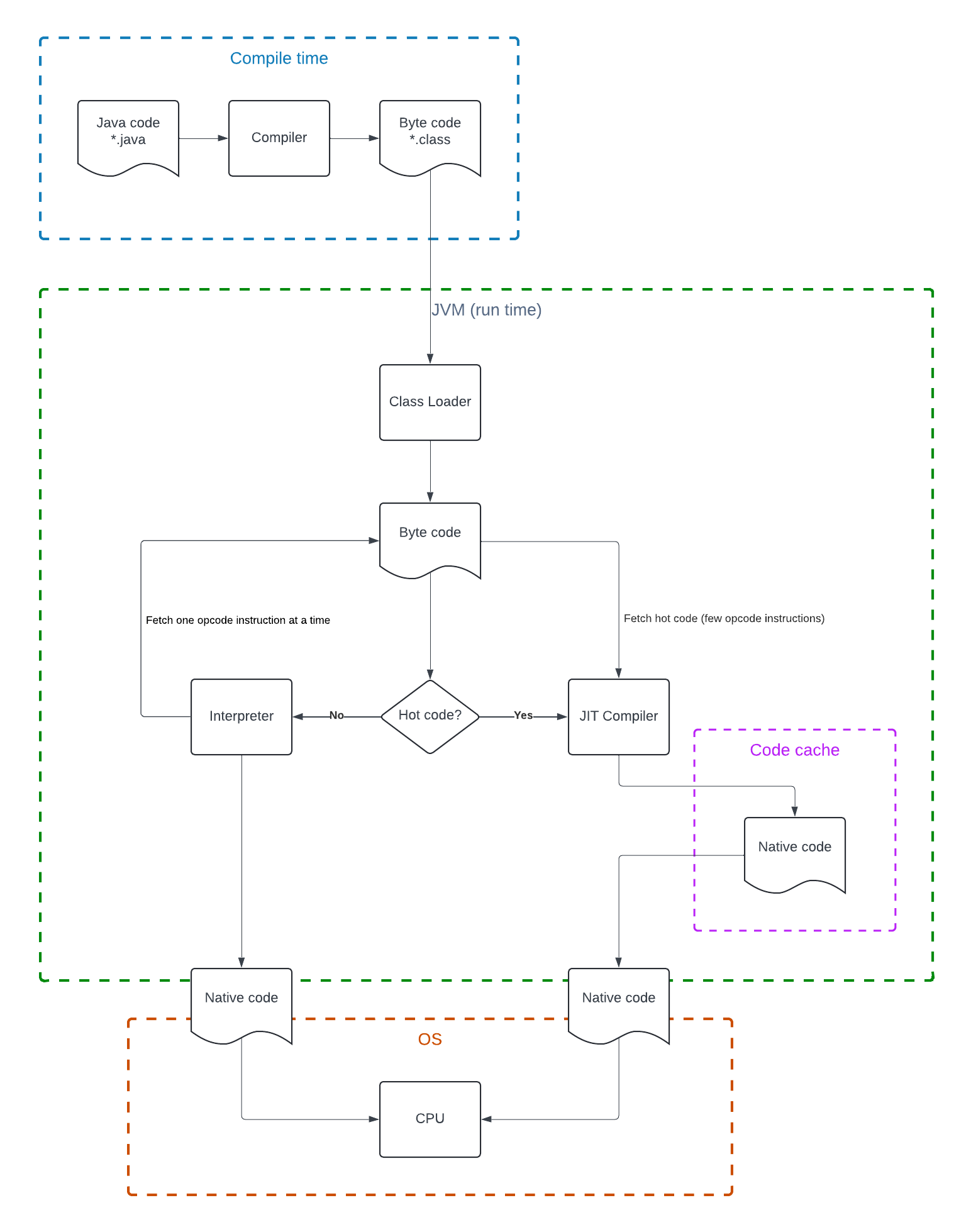Java is often at the center of debates on whether it is a compiled or interpreted language. The answer is not straightforward, as Java employs a unique approach that combines both compilation and interpretation. Unlike C, which compiles directly to OS native code, Java is first compiled to an intermediate byte code. This byte code is then interpreted or Just-In-Time (JIT) compiled to native code by the Java Virtual Machine (JVM) at runtime.

Java’s Compilation and Execution Process
- Writing Java Code:
- Developers write Java source code in
.javafiles.
- Developers write Java source code in
- Compilation:
- The Java Compiler translates
.javafiles into byte code, stored in.classfiles. This byte code is an intermediate, platform-independent representation.
- The Java Compiler translates
- JVM (Java Virtual Machine) Execution:
- The JVM takes over during runtime. It is responsible for executing the byte code on any host machine. Key components include:
- Class Loader: Loads the compiled byte code into the JVM.
- Code Cache: Stores frequently executed code segments to improve performance.
- The JVM takes over during runtime. It is responsible for executing the byte code on any host machine. Key components include:
- Interpretation and Just-In-Time Compilation:
- The JVM can execute byte code in two ways:
- Interpreter: Converts one opcode instruction at a time into native code if the code is not frequently executed (not “hot”).
- JIT Compiler: Compiles frequently executed (“hot”) code segments into native code for faster execution, fetching several opcode instructions at once and optimizing them.
- The JVM can execute byte code in two ways:
- Execution by the CPU:
- The native code produced by either the interpreter or the JIT compiler is executed by the CPU, where the actual program logic is carried out.
- Interaction with the Operating System:
- The JVM interacts with the operating system, providing the necessary runtime environment and system resources for executing the code.
Conclusion
So, is Java a compiled language? The answer is both yes and no. Java is initially compiled into byte code, which is not directly executed by the CPU. Instead, this byte code is interpreted and JIT-compiled by the JVM at runtime. This hybrid approach provides Java with the benefits of both compiled and interpreted languages, offering platform independence and optimized performance for frequently executed code.
This intricate process highlights the strength and versatility of Java as a programming language, making it a popular choice for developers worldwide.



